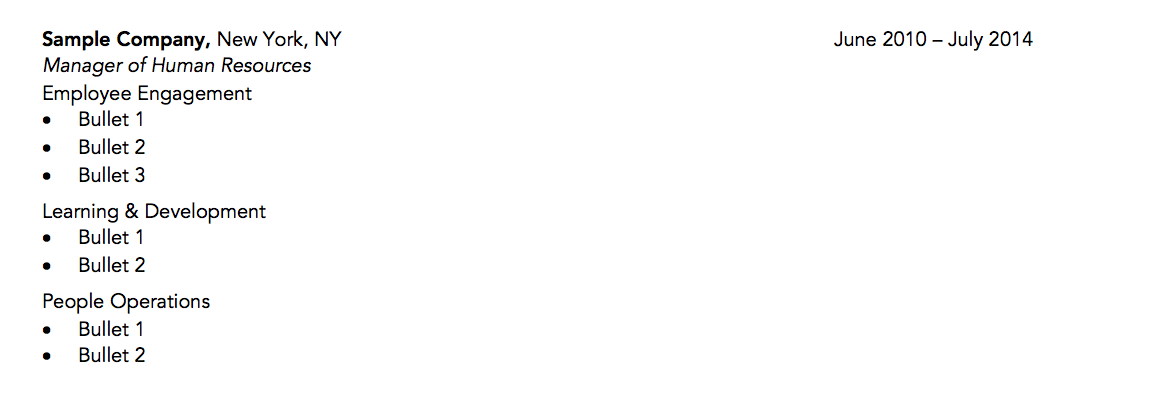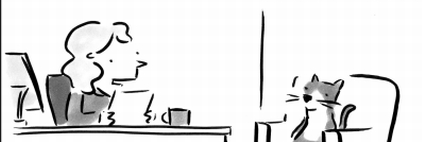Today I’m revisiting one of the most classic job search questions, now with the perspective of nearly 10 years working in the recruiting world and also having worked with hundreds of clients with very different backgrounds.
Does your resume really NEED to fit on one page?
The short answer is no, they don’t. This is not a black and white rule.
The longer answer is that although that is true, most of the two (or three) page resumes I see actually should be on one page.
So which bucket do you fall into? Are you in the bucket where you need to edit down to one page or does your experience justify a longer resume?
Let’s dive in. You should probably be cutting down your resume to one page if…
You’ve been working for less than 10 years
This is the most black and white rule I have when it comes to figuring out if you should have a one or two-page resume.
If this seems impossible to you, the thing that’s important to remember is that even if you’ve had many jobs during those years, not all of them deserve equal real estate on the page.
Your earlier jobs have 3+ bullets describing them
Earlier or less relevant roles can have one to two bullets or even none at all. If you’ve gotten promoted three times with your company, devote the most bullets to the job with the most impressive responsibilities.
Not all jobs on your resume are created equal – and if you talk about all of them in intense detail, eyes will gloss over and miss the most impactful and impressive work experience you have.
Your more recent jobs have 7+ bullets describing them
As mentioned, your more relevant/recent roles should have more description to them, but having over seven bullets is usually overkill. It creates a mass of text and makes the resume feel very dense.
If you think your current role is too large or complex to explain in four to six bullets (and you have room while still remaining on one page) then I’d suggest breaking your bullets into buckets, per the example below, to make them a bit easier to digest.

What people don’t realize is that resumes are screened very quickly and your reader is literally just trying to make enough sense of your story to decide which pile you fall into.
Those in the yes pile will get reviewed in more detail, but the first read is FAST. You have to assume people are skimming and spoon feed the information.
You’re still giving resume real estate to internships or college activities
If you’ve been out of school for five years or more, internships should be removed (my general preference) or completely minimized (companies and titles only, no bullets).
Unless the company or program is incredibly prestigious or the experience gained is the most relevant item you have, there is a point where internships will be ignored (at best) and make you come across as more junior (at worst).
Your summary is taking up more than 1/4 of the page
In general, I don’t love summaries on resumes. The one scenario where I think they work is when someone is making an untraditional career move and it’s not obvious why based on their experience alone.
For example, I once had a client transitioning from PR to Human Resources and her resume had four PR jobs, education, and skills.
We added a summary to tell that story so her applications didn’t seem random or confusing to the reader.

However, if your summary is full of fluff, lists off a bunch of overused terms, and goes on for more than three lines, you’re probably saying too much and using valuable space for something that is pretty low impact.
You’re dedicating space to things that have nothing to do with the jobs you’re applying to
The last thing on the chopping block is anything that is not relevant to the jobs you’re actually trying to get.
For example, if the sixth bullet under a job is something you hate doing and never want to do again, take it off. If you have a temp role that is just being used to fill a gap, leave the company and title, but remove the bullets.
The idea is to curate a one-page resume that is ULTRA relevant to the jobs you want, cutting or minimizing things that aren’t.
–
I can promise you that a shorter, customized, and curated resume is going to perform so much better than the laundry list two-page version you’ve been using.
Cut mercilessly, polish up the most relevant items, and then get really honest with yourself on if your resume really needs to go onto that second page.





